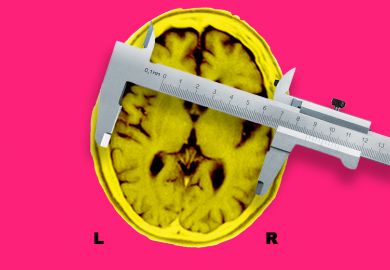The European Research Council (ERC) said it was “no reason for concern” that the proportion of female recipients of its prestigious Advanced Grants has fallen for the first time in seven years.
The new grants, worth almost €652 million (£558 million) in funding, are among the European Union’s most competitive.
The ERC said that the 2023 funding round will be shared out between 255 “outstanding research leaders”, giving them the opportunity to pursue ambitious, curiosity-driven projects that could lead to major scientific breakthroughs.
Of this year’s grants, 195 (76.5 per cent) went to male applicants and 60 (23.5 per cent) to female researchers – down from a peak of 27.5 per cent the year before.
It was the lowest proportion since the 2020 funding round, and the first time the rate has fallen since 2016.
An ERC spokesperson said the success rates for men and women are very similar, indicating that the public body does not receive enough applications from women at this level.
“We are optimistic that with more women beginning to populate the higher career ranks, we will be seeing similar proportions in the Advanced Grants calls in the future,” they added.
“The current dip in the Advanced Grants call is within the range of statistical fluctuation, and is, we hope, no reason for concern.”
The ERC said that 40 per cent of the awardees of Starting Grants, for early-career scientists, are women, and so are 39 per cent of the recipients of its Consolidator Grants.
The 255 successful candidates are based in 20 separate EU or associated countries, including 50 from Germany, 42 from the UK, 37 from France and 23 from the Netherlands.
However, the UK-based researchers will receive EU funding if they move to an eligible host institution. Although the European Commission and the UK government have reached an agreement on the association of the UK to Horizon Europe, it applies only for calls for proposals implementing the 2024 budget and onwards.
If they do not move, the funding will be provided by the UK government.
The competition attracted 1,829 proposals, which were reviewed by panels of internationally renowned researchers – with 13.9 per cent of proposals successfully selected for funding.
Iliana Ivanova, the European commissioner for research, said the grant programme “nurtures the next generation of brilliant minds”.
“These grants will not only support leading researchers in pushing the boundaries of knowledge, but also create some 2,500 jobs for postdoctoral fellows, PhD students and other research staff across Europe,” she said.
Of the proposals selected, 28 per cent were from the life sciences, 43 per cent from the physical sciences and engineering, and 29 per cent from the social sciences and humanities.
Register to continue
Why register?
- Registration is free and only takes a moment
- Once registered, you can read 3 articles a month
- Sign up for our newsletter
Subscribe
Or subscribe for unlimited access to:
- Unlimited access to news, views, insights & reviews
- Digital editions
- Digital access to THE’s university and college rankings analysis
Already registered or a current subscriber?








